UP TO THE MINUTE
Drexel Metals - Grow your Roofing Business with Metal - PODCAST TRANSCRIPT
May 22, 2025 at 12:00 p.m.Editor's note: The following is the transcript of a live interview with Carlisle Architectural Metals (CAM) Director of Associations, Brian McLaughlin. You can read the interview below, listen to the podcast or watch the recording.
Intro: All right. Hi, everybody and welcome to this MetalTalk from MetalCoffeeShop. My name is Karen Edwards and I'm your host today. We're going to be talking all about how you can grow your roofing business with metal. I'm really excited to welcome Brian McLaughlin from Carlisle Architectural Metals and you also know the Drexel Metals brand for today's conversation. But before we get started, a little bit of housekeeping. First of all, this is being recorded. It will be available on MetalCoffeeShop, usually within one to two days so you can watch it on demand or share it with a colleague or whatnot if you want. The chat is open, so we'll be able to see your comments or questions throughout the webinar. We do have some time saved at the end to do a deeper dive on the questions if we need to. So that being said, let's get started. Brian, it's so nice to have you here today. Welcome.
Brian McLaughlin: Thanks, Karen. Great to be part of this. Really appreciate it.
Karen Edwards: Yeah. Tell everybody a little bit about who you are and what you do and your background.
Brian McLaughlin: Yeah. Again, my name is Brian McLaughlin. I am the director of associations for Carlisle Architectural Metals, which is just a fancy way of saying that I drive a valuable program to our association members within the Drexel brand and the Petersen brand, but most of my time over the past 15 years was actually with Drexel Metals. So I started out as an inside salesperson, worked my way up to national sales and into director of sales into my current role, but a lot of the passion has been around regionalized manufacturing, helping, supporting those type of customers.
Karen Edwards: Yeah. Well, thanks for being here today. You've got a long history in the metal world, so we're thrilled to share your insights with our audience today. So that being said, let's get started and talk about why metal. It seems like every time I turned around, I'm just hearing more about metal.
Brian McLaughlin: Yeah, it's honestly a great time to be in metal right now. So we're a little bit of a growth experience. So, look back at when I first started 15 years ago on the residential side, our market share was about 7%, give or take. Now we're talking about 18%, which is really cool. Last five years, it saw a spike about 5%. In commercial, we've always been pretty strong on the market share side, so we've had about 23, 24% of market share. But we were just talking about the article from Metal Construction News and the great work that Metal Roof Alliance has done. One of the cool things that they're targeting for 24 to 28 growth is a plus 19% residential market share growth, which is exciting, so we would love to see that. Really what it means, at least in my opinion, is that more people are getting educated about the benefits of metal roofing, right?
This will come as a little bit biased opinion, but I put a metal roof in my own house and looking at why I did that beyond having a great deal from Drexel Metals was the fact that I didn't want to deal with it again, right? I wanted to do it one time. It has a 40, 50-year lifespan. Everything I've done on that house was based on that. It was the fact that for the siding for the windows, I wanted to do it once. I knew I was going to live in the house for a while. I think there's a lot of people like me in making those types of decisions. So I think it's casting a wider net to the audience, whether it be a homeowner or whether it be commercial space as far as understanding that metal roof is a great product that offers great longevity to the system.
A couple of other things I'd say about why the market's trending the way it is, is looking at some of the things that are happening around us right now. So over the last five, 10 years, we've seen an influx of natural disasters, hurricanes. We constantly have hurricanes in the southeast. We have a lot of great standards with Miami-Dade and Florida building code, but you're also seeing a lot of hail. You're also seeing a tremendous amount of fires now with the devastation that happened in Southern California and the Carolinas.
But metal roofing, when folks are looking at, "What's the next product? What's the product I need to invest into my home and protecting my roof?" Metal roofing typically comes up because for high wind resistance, it's great, has some of the best values out in the marketplace. We have a location down in Florida that's a category five hurricane shelter, just to put it in perspective. Impact resistance against hail, it does a great job with and then it's also class A fire rated. So in terms of one component of a fire-rated system, the roof side, it's really good at. When owners are looking at and making a big investment, they're looking at, "All right. Metal roofing is a great choice for something like that."
The other thing I would say too, Karen, is we're starting to see again over the last five years is looking at diversification. Companies that typically weren't in metal, that weren't talking about metal that was typically know shingle roofers, think about these large remodeling companies, your top 100 remodelers, now we're starting to get some activity there just because they're looking at the same things we're seeing in this data, right? There's a trend of increased market share with metal roofing. There's more adoption to it. So going to in these companies, we partnered up with, I don't know if you had them on your MetalTalk before or not, but Sherwin-Williams through MetalVue.
Karen Edwards: Yeah.
Brian McLaughlin: So, great partners of ours. Sherwin-Williams is a partner for our paint system and they created this MetalVue program to... You would think why does a paint company care about selling to home remodeling companies? Well, same thing we want, where we want to sell more volume, they want to sell more paint. So it was a way that gives access to those companies to gain knowledge on how to sell metal, how to install metal, having sample kits on how to do an in-home presentation. So we're a part of that. Again, it's creating more demand because you're in a segment that typically wasn't talking about metal before. So we're seeing really good progress and impact because of that.
Karen Edwards: Yeah. Yeah. I'm glad you mentioned that. We're going to talk a little bit more about Sherwin-Williams and MetalVue. In fact, we have an entire MetalTalk on just the MetalVue program. So I encourage everybody to go on MetalCoffeeShop and check that one out. But I want to just restate here that you said when you got into this industry, the market share was about 7%. That study, I did put a link in the chat to the article from MRA that references these numbers. But the market share now is 18%, but the expected growth through 2028, that's only three years away is another 19%. So if you're a contractor and you're not looking at adding metal to your product offerings, you are missing out on a huge chunk of that market that's only growing, right, Brian?
Brian McLaughlin: Yeah. I mean, it's amazing when you look at it because again, starting out 15 years ago, only being 7% and just seeing the work that the industry is doing, it's not just Drexel Metals. Drexel Metals is a part of it, but there are so many others in our industry, so many trade organizations promoting the benefits of metal roofing. I firmly believe because of all of us, we're seeing increased market share just because the product is a really good product that there's no doubt about it.
Karen Edwards: So let's talk a little bit about the things that are important for a contractor to be aware of, to be able to know what certifications they might want to be looking at, how to educate the homeowner, because I think part... We are talking a lot of residential right now because residential, I think, is a larger share of the market than commercial, but commercial has a role as well. So maybe you can just touch on some of that important things for a contractor to focus on in order to grow in metal.
Brian McLaughlin: Yeah, I think part of that growth means there's more contractors coming into the metal space. So with more contractors, you need a way to differentiate yourself, whether it be in front of a homeowner, in front of a building owner, architect, consultant, whatever it is. So this goes for Drexel, but really any manufacturer should have some type of way to certify or approve you to basically install their system. For Drexel, we look at it as not only installation, but also manufacturing, right? So we have a way to approve you as a manufacturer for our system and a way to approve you as an installer. When you talk about some of the biggest hurdles being successful in the market, it's all relative around installation, training, education on how to sell the metal system and also estimating, creating a platform that allows you to estimate more efficiently, more actively, more accurately.
For us, for Drexel Metals, we have how to educate yourself online. One of the things I'll copy a link to here will be the CCM University. So we have an area of our webpage that has five different presentations on different elements of metal roofing, whether it be the benefits of metal roofing or the testing and engineering implications of metal roofing, the different tested assemblies to work with, depending on if it's a low-pitch or steep slope roof, something that might be a little bit more complicated and detailed out. We have a lot of content on our website right now. So we do it for both the architectural community on the commercial side, so there's LU credits, learning credits for that or really anybody can utilize. So there are pre-recorded presentations about 45 minutes long each, that if someone was really interested in learning more about metal roofing, it's a great place to go.
We're actually currently working on adding additional content. So we have these 20-minute, 10-minute segment videos that goes over different aspects of different parts of metal roofing, a good, better, best, the values of metal roofing and why you should consider purchasing a metal roofing. So, be on the lookout for that, but that would be all in the CCM University link. We also do a lot of work on installation training. We hear it all the time from our customers is that, "We need help. We need help either with installers, getting new installers into our space or training our existing installers, because metal is different, right? It's not shingles. It's a little bit complicated, but once you get used to it, it's actually easy. It's just a big puzzle piece really.
But we have folks on our team that go on job sites and do startup training through our distribution or regional manufacturing network for their customers. We go bringing our installers into one of our facilities. So we have 17 facilities nationwide that we can bring in installers and do mock roof type training. We will present a mock roof. We'll do a barbecue truck and have a good time training on metal roofing. Then we also do the same thing with our distribution and regional manufacturing partners. We'll bring in a bunch of contractors. Again, the aim is education, right? The more folks that we have knowledgeable about installation practices of metal roofing, whether it be Drexel or anyone else, the better our industry will benefit from it because the last thing we want is a subpar installation. We want Drexel Metals that have a quality name behind our product.
Karen Edwards: Exactly. Yeah. I think you don't want to head out into the field for your first metal installation and not have been able to try it on a mock-up situation. That's a great way to learn.
Brian McLaughlin: It's like they sold it, now what?
Karen Edwards: Right.
Brian McLaughlin: Yeah, I think we fill in the gap though, right? So we promote the fact that we can be hands-on. We're not afraid to actually go to a job site and teach and instruct on the benefits of how to properly install the product.
Karen Edwards: Yeah. Okay. So we've got a bullet up here for technology. I remember for those of you that may know or may not know when EagleView was a startup, I spent some time working with them and the aerial measurements were the newest, coolest thing, but there was always a little bit of hesitation like, "Oh, well, you might not want to use it for metal." It's great for shingles, but the technology, this was 2010, right? This is 15 years later. Technology has advanced to the point where it's really accurate. So maybe you can talk a little bit about that, Brian and how contractors can leverage technology to find success in metal.
Brian McLaughlin: Yeah, you're absolutely right. We have something called Passport that we've partnered up again with Sherwin-Williams and EagleView, but I call it EagleView on steroids or PEDs because it takes exactly what you said about EagleView. It takes the dimensions that they provide as far as the rake, the eave, the hip, ridge, the slope, all that and then it takes it into Passport software where it then converts it into a takeoff, basically a panel layout and it gives a takeoff. What it does is what everybody else had to do manually. So they would get the EagleView, the spit out of the EagleView and take that manually into their own quote form and figure out how many clips they need, how many facets they need.
Well, with Passport, it doesn't automatically, you don't have to go through the manual process with one click of a button, either an address or... The cool part is now they have upload feature of plans. So you can actually upload your plans and it does the same feature that you get as far as a full takeoff with Passport. From there, you identify your price per square foot of the panel system. You identify your price per trim piece, your price on the clips and fasteners and it will build out a complete quote and still taking the EagleView technology. So it's within inches of accuracy, but it gives you a close enough representation of that project that you can actually quote quickly.
So we have a lot of customers, at least on the residential side, that will get that EagleView or I'm sorry, get that Passport completed before they even go to the job sites. So they have basically a binder of that project, how much it's going to cost, what's included, what the details look like, what the panel layout looks like. I think it's the next phase of the iteration of utilizing technology to really build out the business.
Karen Edwards: Yeah. You have to anymore because think about what we're conditioned. I always mention Amazon Prime, right? I can get stuff same day sometimes, next day. I don't want to wait for that information. I think in the past when you were maybe taking measurements and doing layouts and figuring all that out by hand, it could take a few days in order to be able to give that proposal to a homeowner. So you have to be meeting that I want it now mentality, I think.
Brian McLaughlin: Yeah. I referenced one of our customers down in Florida where they do quite a bit of... They get a lot of quote activity or quote requests. Before Passport, they were struggling just to keep up. They would try to get about 10 quotes a day done, something in that range. With Passport, they're able to get up to 30 per estimator just based on the volume that they're able to do. So it's cool in the standpoint if you have a business that is just busting out the seams and that's great, you got to keep up by being able to provide quality estimates and accurate estimates to the field.
Karen Edwards: Yes, quality and accuracy is key. That's amazing that they were able to do three times as much in terms of proposals just by using technology. I'm a big proponent of technology. I love it. One of the other things that I think is really cool is this effort by Sherwin-Williams to help contractors succeed and the manufacturers that are stepping up as well to help contractors find success in metal roofing. I want to spend a little bit of time talking about Drexel Metals Plus, which is your way of providing that support for the contractors.
Brian McLaughlin: Absolutely. I want to give a little bit of background there. Drexel Metals actually celebrating our 40th year this year, so this is a good time here, very exciting, but our strategy has always been at the core to support regionalized fabrication, so we've always looked at... It's easy to sell coil, but it's hard to provide support, to provide solutions, to provide value and we've always focused on that support and value. So for us, instead of having a large factory where we fabricate our own panels and get a flatbed and crate it up and deliver to a job site, we've always done the support through our regional manufacturing network and we build our business around that honestly.
So we are the back office support when it comes time to testing and engineering, the technical resources, the marketing resources, the training. Everything that company needs, we are that support so that they can compete with companies, like I said, as far as a factory type model. We've been doing that for years, right? So our mentality has always been how to grow the customer's business because if we can grow their business, guess what? We grow our business, right?
The evolution of this whole model became what's called now Drexel Plus. So Drexel Metals Plus is essentially our way to legitimize the regional manufacturing model and it's our way to reward some of our best customers. So within Drexel Plus, we have a vetting process. So it's not available to every customer, it's available to those that we invite to it. So basically we're looking for someone that has the same mentality that Drexel Metals has, good quality in the marketplace, a great service, a great name, someone that would value the partnership. We use that word partnership a lot because that's really what we're looking for. We want something to be mutually beneficial that we gain value, they gain value, but we're really looking for the best of the best in each market.
Part of the vetting process and the way we create legitimacy is through our quality assurance training. So when we have an applicant going after Drexel Plus, we will pull in our machine maintenance program, which I'll get to in a second, but they basically handle the quality assurance training, which is a manual that identifies our critical dimensions of our panel systems that we allow others to fabricate for themselves as a Drexel branded system. But within that, it's training on how to create a quality panel, right? So I can't tell you how many times I've seen been on job sites where we get pulled in a lot because of X, Y or Z issue, but it comes down to panel manufacturing that wasn't done properly because they didn't follow certain guidelines or there wasn't a standard to even follow.
So for us, it's creating the standard. It's creating a guideline as far as making sure you test the panels. We have a go-no-go gauge block. That's a pre-cut cast aluminum that they can check all the dimensions of their panel profile, along with checking it with the clip, along with checking the panel before mass production to see if there's upturn, downturn, camber on the panel. All those things are relevant in terms of making sure we have quality product in the end of the day. That's really important of this Drexel Plus program is that we want to protect our customers. So the same tolerances that we give ourselves, we want them to be able to follow as well. I obviously definitely passionate about that part of it just because we want to make sure we have quality in the end of the day, because if you don't have quality, what do you have, right?
One of the other things is I think Drexel Plus represents the largest network of regional manufacturers that's within a network. As part of the program, they get value, right? So they have access to warranty upgrades that aren't available to others. They have access to warranty discounts that aren't available to others. They get access to our marketing team. They get a marketing budget. They also get access to all of our testing and engineering for all the panel systems that they can comply with. But one of the great things about our program is that they are part of a network.
So when we talk about a network of association manufacturers, we talk about... When we get jobs, so we'll get asked to bid a fabrication product, call it a two-inch mechanical, we will utilize the network to subcontract through. So they get basically non-solicited leads from Drexel Metals in terms of they're part of the network. The estimating team has a database of all their capabilities, so they know if they make two-inch, three-quarter radius. I mean, we ask everything. We talk about water jet, lasers, paper, systems, you name it, we want to know because granted, we get asked if we can provide it and without knowing we can't align the two together. So we do that a lot. The other cool thing is utilizing the network from a peer to peer. So when we talk about we have however many members we have in our program right now, I think it's about 60 members nationwide. When one member doesn't have a tooling or a product, we can pull in the other member to help each other out. We do that a lot in different markets and it works out really well.
Karen Edwards: Can I ask you a question?
Brian McLaughlin: Yeah.
Karen Edwards: So your members, are they maybe contractors that have their own sheet metal shop? Are they standalone sheet metal shops? Is it a mix?
Brian McLaughlin: Yeah, it's a mix. We identify that by the different membership types. So we have two membership types that are fabricator only, what we call manufacturer only or fabricator only and that's based on how much volume they do. So our very top volume getters are elite distributors and the second tier is authorized fabricators. Then we have something called a certified installer, which is kind of what you were talking about, where it's total turnkey, where they're both contractor and fabricator. The reason we do that is we want to understand... Because it's different value that they get as being an installer versus being a manufacturer. So a lot of the leads that we give as far as fabrication go to the elite distributor or the authorized fabricator.
Karen Edwards: Okay. That makes sense. So you mentioned at some point, I think it was when we first got onto the Drexel Metals program, you mentioned a machine maintenance program. Can you talk a little bit about what this is and what you do as part of this program?
Brian McLaughlin: Machine maintenance actually came back from the feedback of our customers, right? So they were looking for an outlet, someone that could service their machines, kind of one throat to choke mentality, someone that they're already doing business with. So they're already buying the coil and flats from us. We're already selling the machinery to them. The next phase was really finding ways to help support from the maintenance standpoint. So we created this machine maintenance program probably about three or four years ago. The team is made up of tech reps that have 60-plus years of a hands-on experience. So a lot of these folks came from owning their own companies, running their own panels, running these machines themselves. So a tremendous amount of experience.
The other cool part about this is that they're certified by some of the biggest manufacturers in our industry in terms of equipment. So they're certified with new tech machines, with metal forming with Schlebach, Schechtl, CIDAN, Roll Former Corp and then we go through a preventive maintenance checklist. To become Drexel Plus, it's a requirement to have the Drexel machine maintenance team come to your facility, do that QA audit that I talked about as far as the quality standards along with the preventive maintenance. Frankly, there's value with the preventive maintenance because what costs a manufacturer money is time, time down, right? So when that equipment isn't working and they have no other alternative, that time is critical.
For us, we want to be proactive with the maintenance. So we go through a routine checklist going through lubes and filters and all the parts and replacing the parts as needed. We keep that documented on an annual basis. So the machine maintenance program is done annually and then we identify if there's anything else that's needed. We give them a point of contact so they have direct access with their tech rep so that... The other feature of this program is if they... Typically, when a machine goes down, when does that happen? So usually six, seven o'clock in the morning. Nobody's around. Time zones an issue. So we have tech reps that are on call. So they have an issue, we can identify and help resolve the issue. Typically, nine times out of 10 we do it over the phone or FaceTime, but we can help that customer get their machine back up and running and guess what? Making money. That's really a big benefit of this program.
Karen Edwards: And this is just no cost to them, right? It's because they're part of Drexel Metals Plus.
Brian McLaughlin: There is a cost associated with doing the machine maintenance. So having one of our tech reps come to the facility, there is a cost associated. So it's $3,000 flat to do that on an annual basis. But again, it provides not only the quality assurance to get approved as a Drexel Plus member, but on top of that it also does the preventative maintenance feature that we do.
Karen Edwards: Right. Then gives you access to that tech rep should something happen at 6:00 in the morning or 7:00 in the morning. Okay. Yeah.
Brian McLaughlin: Exactly.
Karen Edwards: So a minimal investment to maximize efficiency and cost-savings.
Brian McLaughlin: Exactly.
Karen Edwards: I like it. Okay. One of the other things that you mentioned as well earlier was the different kinds of warranties. So maybe you can just do a little bit deeper dive on that for some more information.
Brian McLaughlin: As a Drexel Plus member, they would have access or they have access to what we call gold standard warranty. So it's essentially our standard warranty, but upgraded. So it's easier to explain the standard warranty first. It's a 35-year non-prorated warranty for the paint finish. So it's a Sherwin-Williams standard paint that covers for chalk, fade, delamination peeling of the system. With the gold standard warranty though, you get a couple of benefits, right? So one is that it's fully transferable. So our standard warranty and frankly all the other warranties out there are typically non-transferable. So for us, we're saying, "You can transfer once. You can transfer it twice. You can transfer it 10 different times to 10 different owners. No matter what, you still have that warranty."
Karen Edwards: Wow.
Brian McLaughlin: That's executed from day one. The other part of it is typically these warranties will only cover material. With this upgraded version, the gold standard warranty, you get material and labor, so you get full coverage peace of mind on any type of paint finish claim as part of being a Drexel Plus member. So you get access to this warranty where really anybody outside of Drexel Plus would not get access to this warranty. So it's a way to differentiate. If I'm a contractor going up against another bidder for a metal project, I'm able to utilize this warranty as a way to differentiate from that competitor.
Karen Edwards: Yeah, that's huge.
Brian McLaughlin: Yeah. There's only a couple requirements, right? Like I said, you're either a Drexel Plus member or you're buying from a Drexel Plus member. You're a certified installer for our systems and then you're buying the entire system, meaning... I look at it like a car. You just don't buy the tires or the engine, you buy the car. So the car for us is going to be the panels, the trim, the clips, the fasteners, the underlay. That way we know it's one of our tested assemblies tested system.
Karen Edwards: Right. And you know that the installation is going to be quality because you've done all the vetting ahead of time and the training to ensure that. Yeah, I love it. Differentiating yourself in this market I think is important because we talked about the growth, so we're going to see more contractors coming in to metal, so the space is going to start to fill up. So being able to offer something different like this, the transferability is key, I think, for a lot of homeowners. That's huge.
Brian McLaughlin: A lot of conversations with contractors as far as offering the best system, which this would be the best system, right? So you got a upgraded warranty. You're utilizing all the bells and parts and pieces that create a system, but they also offer the good, better. So the better might be instead of the gold standard warranty, you get this, but our standard warranty, we won't do the underlayment, but it gives options as far as pricing goes. You want to be able to sell the value of what the best is and what you get because of it and a lot of times you can upsell based upon those advantages.
Karen Edwards: Yeah. Yeah. Options are always good and people like good, better, best, right? Those scenarios seem to work well, so I love it. Okay. Let's talk about how being part of Drexel Metals Plus, what kind of impact that has on members businesses. You mentioned marketing. You mentioned a marketing budget. I'm really curious about that. You're going to give me money?
Brian McLaughlin: Oh, yeah. We love giving away money. I would say this and this goes back when I first started the conversations about supporting regionalized manufacturing and we always talked about marketing because most companies, contractors or manufacturers don't have a marketing team. If they do, it's usually a third party. When they do that, they're busy 80% of the time training that marketing team to understand the complexities of metal roofing, right? With us, you have a team, not just one person, but a team driven through Carlisle, which is obviously our parent company, well-known brand. They have their own marketing system. I'll call it a conglomerate, but basically we understand metal and we understand marketing.
So you get a marketing budget as being a Drexel Plus member. That marketing budget differs depending on which level you're at within the membership group, along with how much you buy in annual revenue, but ultimately you get something to apply towards co-op marketing collateral. So we have templates for our panel data sheets for our color charts that you can as a member put your logo and your address, telephone number, email, all your information on there, so it gives you more professionalism look or more professional look. It also offers better visibility out in the marketplace. So if you're out there trying to promote your business, not only are you partnered with a good brand as Drexel Metals, but you're also getting your image out there as well.
Some of our members have also... We offer custom marketing. So we have someone out there that stocks 12 different colors. They wanted to create a color chart that identifies those 12 colors as their quick on-demand colors for quick service and then all the other colors would be lead time colors. We were able to do that for them and I would say that's worked well for their business because again, talking about inventory turns, talking about guiding the customer to the colors that they want to sell because they can offer quick lead times, that's helped them tremendously.
We've done single page sales slicks where we identify specifically what the customer wants to offer, what they want to show their customer. We've been able to customize that for them, pop-up banners for trade shows. So really the creativity is endless. It's going to be depending upon what the customer wants and needs and we have some really great solutions. Quick shout out to the marketing team because they do a really great job. They have to deal with me just spitballing ideas all over the place and they try to figure out a way to make it work. So it's really good.
Karen Edwards: It's so important, I think, to reach out to your manufacturers. I just want to reiterate what you said, Brian, about the contractors often don't have their marketing team and they're working with a third party that doesn't understand it. So I just am all for working with your manufacturers because they get it and they've been doing this for other contractors.
Brian McLaughlin: Yeah. I saw that firsthand, right? I remember 10-plus years ago working with a contractor on a website, they wanted to create a website and they were just so frustrated with the company that they're working for six months and really had zero results just because they didn't understand the business. So, seeing that and what we could help, not to say we're creating websites, but seeing what we can help with some of the marketing literature to help really gain that visibility. The other thing that we do as well I want to mention is swag. We have a great swag store, so quarter zips, polos, high vis T-shirts, hoodies, coffee cups. You name it, we have it, but they have the opportunity to utilize their budget for that kind of stuff, whether it's for their employees or customers. They can put their logo with Drexel brand, their logo and distribute that to their customer base, which is really awesome.
Karen Edwards: Yeah. Yeah, I think that's really important. Marketing is my background and so I would spend... We could do an hour just talking about this, but we don't have that kind of time, so we'll keep it moving along. But yeah, definitely always talk to your manufacturers because sometimes you just don't know what you don't know and you don't know unless you ask. So this is great. Okay. I want to spend a little bit of time. We've been talking about the growth of metal, why you need to be a part of it and here's one way that you can be a part of it through Drexel Metals Plus, but let's talk a little bit about why should they choose Drexel as their metal partner?
Brian McLaughlin: Yeah. Obviously, we'd spend a lot of time talking about Drexel Plus, which is going to be more on the steep slope, but we do offer on the commercial side as well for flat roofing. So we have a program that helps, again, focus on regionalized manufacturing. So we have a way that we certify manufacturers to be compliant for, let's call it ANSI, SPRI, ES1 and GT1. So ANSI, SPRI, ES1 and GT1 is essentially part of the building code, so part of the IPC. ES1 is adopted in all 50 states. GT1, which is for the gutter, is adopted up to I think about 30 states. So really what we've done is we've tested fascia, coping, gutter these systems and we've created a way that we can certify a sheet metal shop to gain compliance through an annual audit that we do.
So through this program, you're starting to see ES1 and now GT1 and a lot of specifications, it used to be just on the East coast and now it's really canvas its way all the way out west. So we have I think probably over 100-plus members within this program today. So it shows you that there's demand and value for it. We closed the loop in terms of giving our customers a way to be compliant for ANSI, SPRI and ES1. GT1 is something we're launching here in the next 30, 60 days that we'll have gutter systems that meet the GT1 standard in a way that we give our customers a way to gain access to it. So really excited for it, but ultimately what we're looking to do is offer credibility to a sheet metal shop. So instead of fighting the battle and saying, "I can make this," it's giving a certification that says you're compliant with the standard. You're certified through Drexel Metals and you can perform based on these profiles.
Karen Edwards: Yeah. Those standards, I mean, this is what keeps a flat roof on the building, right?
Brian McLaughlin: No, absolutely. I mean, any wind event, typically the first sign of issue is at the perimeter, especially at the corner. So if you don't have anything to back your company up in terms of it's tested. This is tested the way we designed it, the way we manufactured, the way we installed it. You're on your own. You're at the center of that liability."
Karen Edwards: How long has this been? This is kind of new, a relatively new standard.
Brian McLaughlin: The standard itself has been around for a little while, I'd say over the last 15 years or so, but GT1 is new. So GT1, I would say in the last couple of years the standard was approved and now we're starting to see adoption in IBC and now we're starting to see through that specification requirements for GT1. So you're going to start seeing it more and more as time goes on.
Karen Edwards: Yeah, especially as you mentioned earlier when we were talking about all the severe weather that we're having, it just seems like it keeps getting worse. So having the edge metal and the gutters that meet those standards is even more important than ever.
Brian McLaughlin: Absolutely.
Karen Edwards: All righty. So let's talk about how to get started, right? Maybe I'm not even doing metal right now and I want to. At what level can I be involved in Drexel Metals Plus?
Brian McLaughlin: Yeah, I think it depends. Obviously, there's a vetting process. So the best thing to do is to get with your local Drexel Metals rep or you can get with me directly, right? I'll leave my contact information here. But Drexel rep or the regional manager for Drexel, they will identify what type of business you have, where you would fit. If there's mutual alignment as far as it makes sense that to bring you on as a Drexel Plus member, we'll look at doing that. So there's an application process and a vetting process to get approved, but Drexel rep would be the best way to do it or the regional manager, for sure.
Karen Edwards: How do they find where is their rep? On your website, right?
Brian McLaughlin: Yeah, on the website. So we do have on the top right of our website Find Your Rep and it's all mapped out to understand exactly who we have, where we have. Like I said, my information's on there as well.
Karen Edwards: Excellent. Maybe, Brian, you want to just drop your email in the chat for everybody, so if someone does have questions, because I don't think we have it up on a slide. Maybe we do toward the end, but just in case. We'll also get you that link to CCM University that, Brian, if you want to pull that out as well. There we go. You just dropped that in there for everybody. It's bmclaughlin@drexmet.com for those of you may be watching this on demand who can't see the chat. All right. Well, Brian, this has been really very interesting and informative. You know what, one thing we didn't talk about during this webinar, but it's growing in popularity and I actually just did a podcast on this the other day, solar. How do solar and metal roofs go together?
Brian McLaughlin: One of the best platforms for solar, again, in my opinion, but it creates an environment that you don't have to penetrate the roof system, which is always what we're after for our standing seam concealed systems. So for solar into metal roofing, we obviously have a great partnership with S-5! They have a really simple solar kit, PV kit as far as the attachment method, but again, the attachment is via a clamp that is side set screw, tension screw to the side of our standing seams and it's engineered so that you get not only a system that's easy to install, a system that doesn't penetrate, but also a system that's engineered for our metal roof system. So it's just a trifecta as far as compliments in terms of components.
Karen Edwards: Yeah. If you're going to put solar on, put it on the longest lasting roof substrate possible, which metal's up there.
Brian McLaughlin: That's a great point in terms of you don't have to worry about taking off solar and trying to replace the roof underneath of it. You put solar and metal together, the metal's probably going to outlast the solar, to be honest with you.
Karen Edwards: It's like peanut butter and jelly. All right. So any advice for somebody that's currently just doing shingles and asphalt and they'd like to get into metal? I know you mentioned a couple of resources earlier. Maybe just touch on those again.
Brian McLaughlin: Yeah. I mean, we have the program established for how we train installers, so whether we do it directly or through our distribution or manufacturing network. It's funny, a lot of our sales reps are former installers, right? So we have them, between them or our tech reps go out to the field. The best approach I think, we have a couple different ways of doing it. We can do classroom settings, which is great, but in my opinion, hands-on is the best way, get with the installer that's actually doing the work. No offense to the roofing owner or the estimator, but reality is if we're talking about installation training, we want to get with the installer that's actually doing the work. So we've done a lot of different programs.
So if you're an installer that's a shingle installer that once to get into metal roofing, again, reach out to us, reach out to a rep. Again, via our website, you can find any of our reps in any of the regions. But we have a couple different programs that help you out. So if you have a job today that you got as metal and you're unsure how to do it, we have a team to be able to mobilize to go onto the job site and help you out and stick with you and make sure you understand how to install it. So again, I would say our approach has always been more hands-on than anything else.
Karen Edwards: Okay. Next question is, I'm considering purchasing a machine. This is tough probably to answer, but how long does it take to recoup that investment?
Brian McLaughlin: Yeah.
Karen Edwards: It depends, right?
Brian McLaughlin: That's a loaded question. Yeah, there's variables in that, right? So one is what type of machine? So you can get a machine that's 60, 70,000 or one that's 150,000 to 200,000. So it's the type of machine, what you need for your business. So you want to identify first what makes sense for your business. Are you residential? Are you commercial? What's the most popular panels out in your market that will drive... Whether or not you need the Cadillac of machines or the base model of machines.
On top of that, you need to look at how much are you purchasing annually in metal roofing. So if you're purchasing 150,000 versus 250,000, the time, the ROI would change on that as well. Then how much your labor is going to be as far as fabricating the system. So we always say if you're buying 150, $250,000 of fabricated panels, likely, depending on the machine, you should get an ROI in two to three years is typically what we say. Again, a lot of variables in that, but you can also get... With Drexel Metals, we sell machines. Right now, we can do an ROI analysis for you to understand how long it actually would take based on your actual real-life example.
Karen Edwards: Nice. Yeah. So the answer is it depends, right?
Brian McLaughlin: That's the best way to say it.
Karen Edwards: I get with Drexel, definitely do that ROI analysis. That looks like all of our questions. Well, first of all, Brian, I just want to say thank you. Thank you to Drexel Metals for sharing all this information about the metal market, which is just growing, like we said, like hotcakes. Thanks for being here.
Brian McLaughlin: Yeah, appreciate it, Karen. Thanks so much.
Outro: Yeah. Thank you everybody out there for joining us today. Be sure to visit metalcoffeeshop.com. Check out our read, listen, watch menu. You'll find this on demand there and you'll also see some of our other webinars that you may want to catch up on. Thanks for being here today. We hope to see you on a future episode. Bye, everyone.
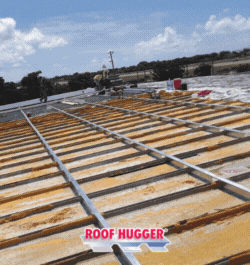


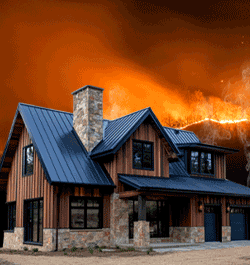
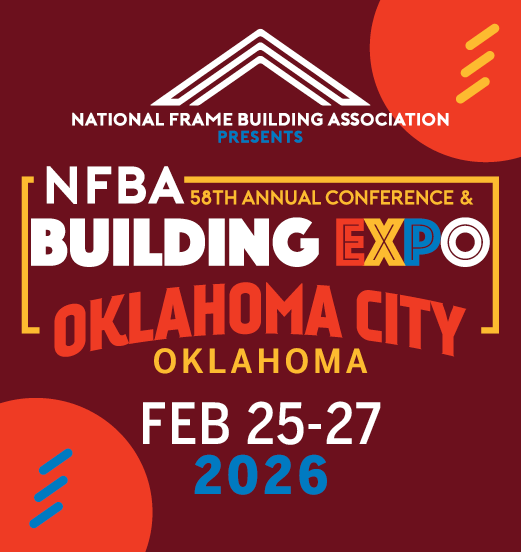







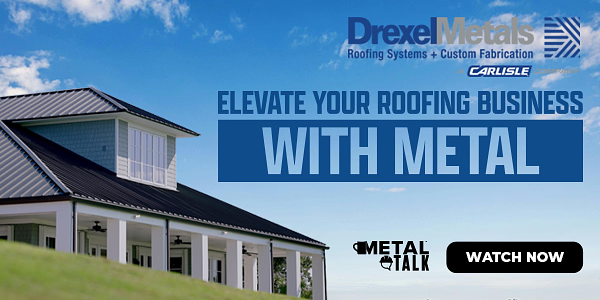
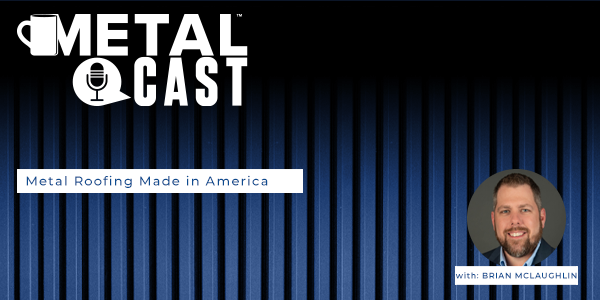
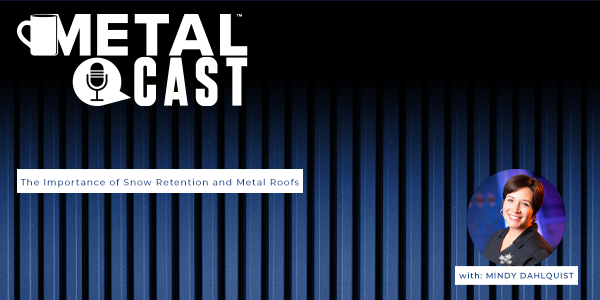
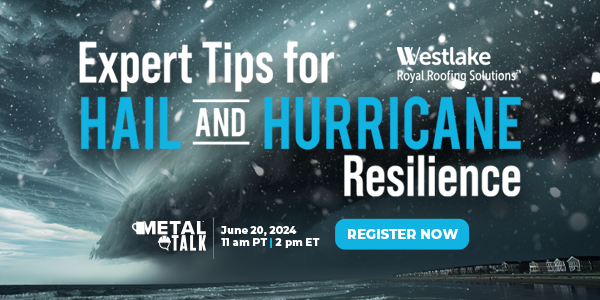




Comments
Leave a Reply
Have an account? Login to leave a comment!
Sign In